Valletta does not lack culture of its own. On the contrary, it has plenty of it—the little mundane rituals of “hello” and “how are you”, the feasts, the relationships between the people whom Valletta comforts and makes feel at home.
by Raisa Galea
Image: Map ‘Valletta ou Valete ville Forte, de l’Isle de Malta’ | BLAEU, J. / MORTIER, P. 1705
[dropcap]W[/dropcap]hen I moved to Valletta six years ago, one of my greatest surprises was seeing that particular face expression each time I told somebody where I was living. “Valletta?”—they cried, turning their face into a display of disbelief and frustration—“but why?!” It was then my turn to be surprised and reply “Why not?”, only to learn that the problem was “those-ħamalli-hostile-to-every-stranger-and-whom-everyone-in-their-right-mind-avoids“, or, in brief, the stereotyped residents of Valletta. My remarks on the absence of anything outrageous about my Valletta neighbours usually met a skeptic look, followed by a short yet affirming “not yet”.
Although il-belt has changed so much these past few years, ironically, the expression of surprise accompanying the question “Do you live in Valletta?” remains, but of a different kind. The alarmed look has now been replaced by a brow-raising suspicion of my riches. The most frequent question now is “How can you afford it?” This curiosity is easily understood: at this point in time, the monthly rent for a basic two-bedroom property is no less than €700, while more fashionably furnished properties cost between €1000 and €2300 (!) per month. Valletta retail has also been transformed: the prestigious boutiques and fancy cafeterias are replacing affordable clothing shops.
What’s happened? How has the capital so closely associated with “slums”, “criminals” and “ħamalli” become trendy and barely affordable for an average earner within just a couple of years? The effect of gentrification brought on by Valletta2018 handsome investment prospects is only a part of the bigger puzzle. The cultural climate of our capital is intriguing and complex. In fact, rather than being smoothly revamped into a “capital of culture”, Valletta has become much more of a battleground of antagonistic cultures and the winner is the one that promises highest profit.
Defining “Culture”
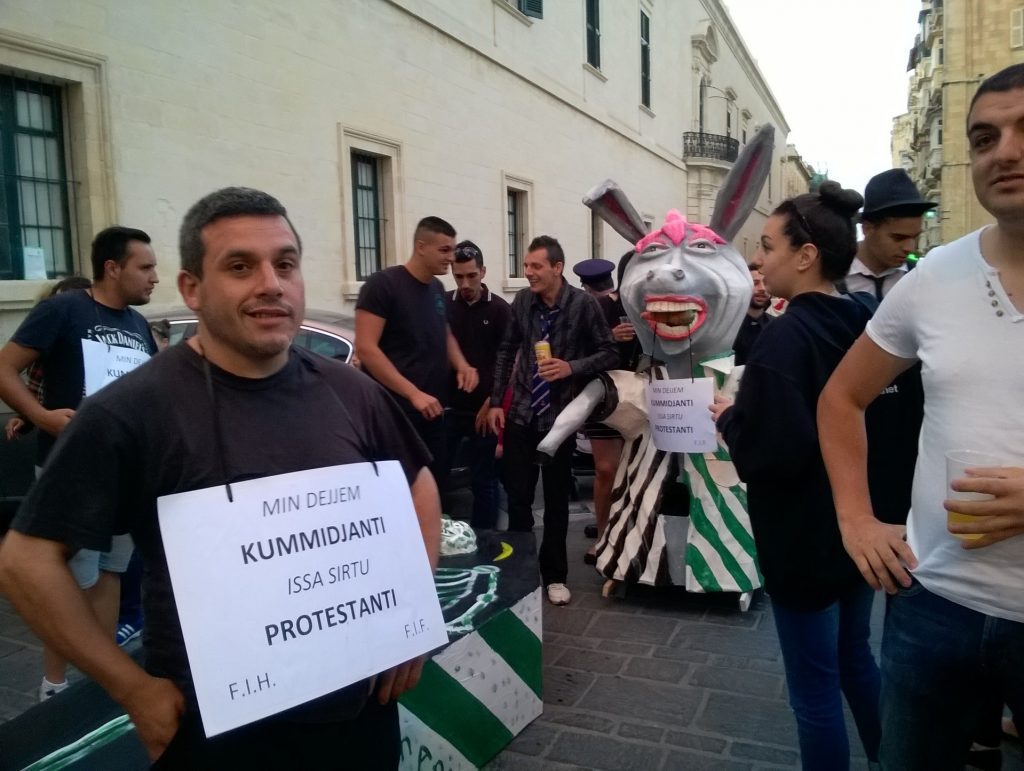
The rapid transformation of Valletta is a source of many disputes. Some argue that it was far more charming in a crumbling state. Others say that a facelift is necessary to host the V18 events ‘in style’. One way or another, the ultimate majority of discussions about Valletta’s future image focus exclusively on the visual aspects of its facades and omit the stories of human relationships behind them.
[beautifulquote align=”left” cite=””]Since there is a great variety of equally important cultures, it is absurd to suggest that any place or person could lack it.[/beautifulquote]
To start with, there is no universal definition of culture. In fact, the two most frequently referenced definitions contradict one another. According to one of them, culture is “a moral and aesthetic ideal, which found expression in art and literature and music and philosophy”. The other one suggests that culture is “that complex whole which includes knowledge, belief, arts, morals, law, customs, and any other capabilities and habits acquired by man as a member of society”. The first implies there can be one and only ideal of culture. The second insists there is a great variety of equally important cultures, hence it is absurd to suggest that any place or person could lack it.
The fate of Valletta depends on which kind of culture it is a capital of. Is it the culture limited to prestigious entertainment or is it the culture of everyday life experiences which bring the place and the people into a tangible bond? Is it the culture which treats Malta’s capital as a gourmet backdrop for trendy performances or is it the culture which can be experienced only by becoming part of its daily fabric?
Valletta as Two Cities

I always thought that every place owns its unique spirit to the indissoluble relationship between its architecture and its residents. However, soon after having become a part of Valletta myself, I began to realise that, in the eyes of public, Valletta was two distinct things: one a marvel of Baroque architecture and the other—a swamp. One to be admired, the other to be disdained and vilified. One—its facades and the other—its ‘3rd class’ residents.
I learned that Valletta was severely bombed during World War II and the majority of its A-list inhabitants fled to safer places. Countless times I witnessed how elegant ladies and gentlemen grimaced in resentment at “the city built by gentlemen” not belonging to “gentlemen” any longer.
[beautifulquote align=”left” cite=””]Valletta’s architecture and Valletta’s residents are not seen as one.[/beautifulquote]
The tragedy of this immensely charming city is that Valletta’s architecture and Valletta’s residents are not seen as one. Sadly, in the eyes of respectable citizens and heritage guards, the residents and the architecture belong to different dimensions and are worth of contrasting treatment. The residents, often stereotyped as primitive boors, leeches depleting the social welfare or criminals, are presumed undeserving of the places they inhabit, in which every stone tells a story of its past noble magnificence.
[beautifulquote align=”left” cite=””]For Maltese conservative gentry, culture and Baroque are interchangeable terms.[/beautifulquote]
The Maltese conservative gentry, for whom culture and Baroque are interchangeable terms, goes at lengths to emphasize that the city built by their forefathers still belongs to them and it should be reserved for worshiping high culture. They denounce anything unfitting of Valletta’s noble image. The Monti, pastizzi shops, clothes lines—everything inseparable from the daily lives of many of Valletta’s residents—is classified as desperately brutish, plebeian and culture-lacking. The social housing units of Mandragg and lower Valletta fall into the same “shameful eyesore” category.
Hipster Valletta: Regeneration with a Taste for Venerating Poverty
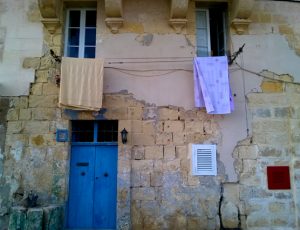
Unfortunately, the nation-wide pride for its architecture did not protect “the city built by gentlemen” from decades of neglect. In his renowned photographic essay “Vanishing Valletta”, David Pisani documented the crumbling abandoned buildings which neither “gentlemen” nor the government rushed to restore. The most beautiful facades were not deemed worthy of care until a few years ago, when shabby suddenly became the new chic.
New bars on Strait Street and lower Valletta (former red light districts) were injected with a new vibe. These trendy outlets rely mainly on the fashionable hipster crowd who visit Valletta for a sip of “authentic experience”.
The hipster crave for “authenticity” deserves a special mention.
Unlike the conservative baroque-worshiping gentry, the predominantly young creative middle class is not repelled by shabby walls and laundry lines. On the contrary, the youth, unfamiliar with the realities of true undignified poverty, sees dilapidated spaces as aesthetically pleasing and ‘cool’. Thus, to the hipster culture, Valletta’s crumbling facades are a splendid backdrop for a trendy party.
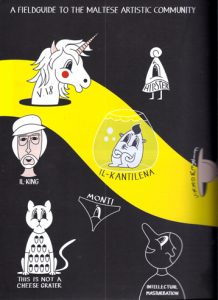
The hipster culture does not seek a deeper relationship with the city because its interests do not delve deeper than the facades. This way of experiencing the city also strips its inhabitants of their humanity as it folklorises them into exotic creatures. The condescending acceptance of ’embarrassingly styleless specimen’ best manifested itself in a LovinMalta’s article: With a touch of sentimental sadness, it waved good-bye to the Triton Fountain kiosks, classifying them as amusing, yet unfitting to the upscale image a European Capital of Culture is expected to flaunt.
The contrast between the outspoken poverty of a few Valletta’s neighbourhoods and the trendy entertainment culture, thriving on romanticising this poverty, is stark. Hipster’s willingness to hang around dilapidated spaces sets a precedent for opening more bars designed to suite a particular taste. While Tico-Tico, Café Society and the Gut physically belong to Valletta, they remain an isolated bubble disconnected from the mundane activities of the local community.
Boutique Hotels for the Tasteful Caste
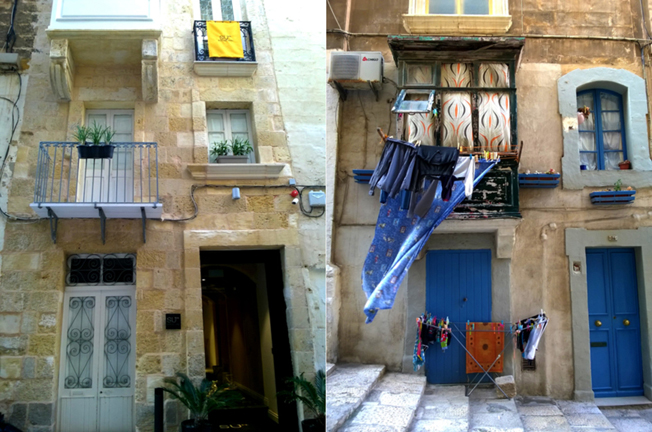
After the decades of neglect and distant worship, the vacant houses and residential properties discovered the new meaning of existence—that of a boutique hotel.
It is easy to lose count of the permit applications for boutique accommodation popping up practically around every corner. With no exaggeration, there soon will be more boutique hotels than residents in Valletta: exclusive accommodations such as Ursulino, Casa Ellul, SU29 and Palazzo Consiglia are now competing for distinguished clientele with La Falconeria, De Vilhena, Valletta Boutique Living, Valletta Vintage and a dozen more boutique hotels-to-be. Barbara Bastions can now be safely renamed into Boutique Bastions (or Mark Weingard’s Bastions) since only a couple of houses in that location are not being converted into exclusive accommodation of some kind.
The construction works were criticised by the local council as “the worst siege ever” and slammed by the residents, the heritage organizations and the intelligentsia alike—albeit for contrasting reasons.
[beautifulquote align=”left” cite=””]It is not the developments of boutique hotels as such that the “baroque or nothing” heritage activists protest, but the obscure developers who are detested for their opportunism and ‘cultural unawareness’.[/beautifulquote]
Whereas the residents have to endure the non-stop sounds of drilling, the cranes above their roofs and the clouds of dust, the reasons for critique from the heritage activists and the creative class are not as straight-forward. It is not the developments of boutique hotels as such that the “baroque or nothing” heritage activists protest, but the obscure developers who are detested for their opportunism and ‘cultural unawareness’.
The creative crowd predictably whines about the visual aspects of the developments: the cranes distorting the skyline, the disappearance of venerated shabbiness and the heavy presence of ‘scruffy’ workers, so unpleasant to their ‘aesthetically sensitive’ taste. On the other hand, the ever-growing number of boutique accommodations provides a perfect opportunity for implementing interior designer skills and entrepreneurial ambitions—the traits highly respected by the tasteful critics. Thus, once the cranes, the trucks and the workers are gone, leaving behind a new deliciously designed hotel, the critique is immediately replaced by ovations and excitement at the prospects of welcoming the esteemed guests.
Gentrification of Valletta is not only barely spoken about but is openly celebrated. Same is true about the Three Cities—Senglea, Cospicua and Birgu.
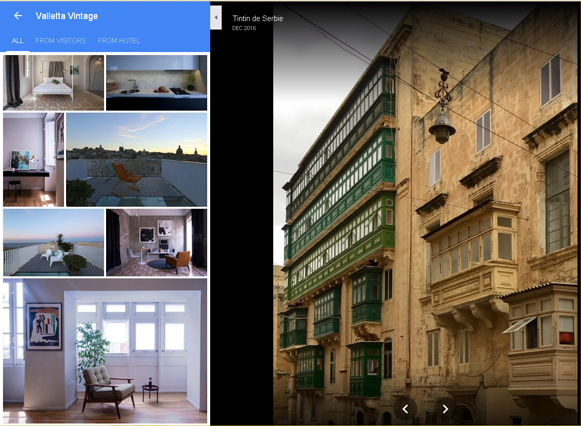
It certainly is positive that the buildings of such beauty and history are being restored, yet it is equally sad that the restoration of these buildings is deemed worthy only if it promises solid investment returns. Besides, the ’boutiquefication’ of Valletta reduces the residents and the everyday life to a decorative view from a holiday room.
The Capital of Whose Culture?
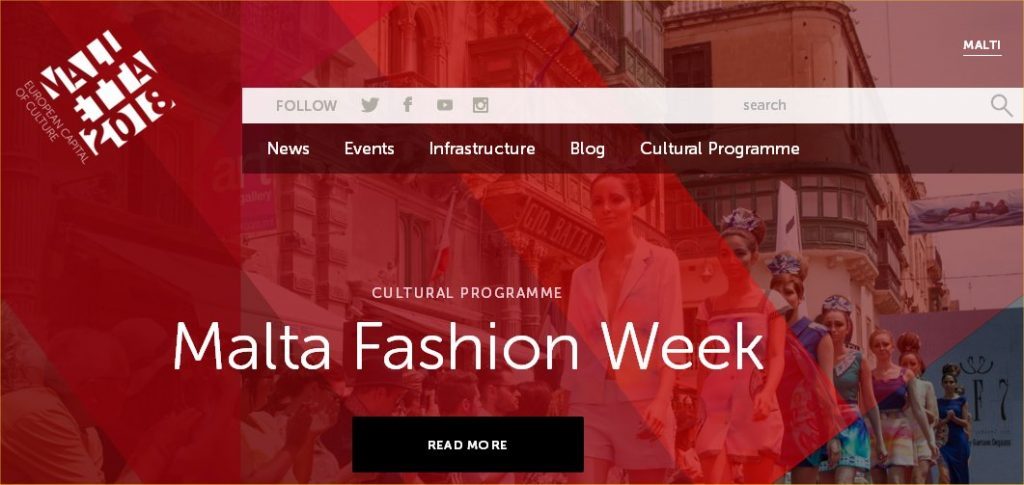
Another unsubtle declaration of what kind of culture is to be respected came from the artistic director of Teatru Malta, Sean Buhagiar. A few months before the announcement of snap elections delivered Malta into fever, he had urged the Prime Minister to abstain from disturbing “the culture” with such an non-creative event as general elections. Sadly, this point of view is shared by the various creative professionals—artists, designers, performers—to whom Valletta2018 is, first and foremost, an opportunity to impress an eminent international audience with their presumably high degree of creativity.
The employment and career offered by V18 are certainly among its positive aspects, yet the statements like those uttered by Sean Buhagiar are indeed irritating, because they refuse to acknowledge any other definition of culture except from artistic performances (which he and his colleagues play an imperative role in). Sure, the demand for sophisticated entertainment is at the core of the middle- and upper-class cultural habits yet culture, in its broad sense, is not equivalent to the consumption of concerts, performances and exhibitions.
Sincerely, I have lost count of Valletta-related arguments to disagree with.
I disagree with sentimental conservationists who mourn the Valletta of crumbling facades and regard it as far more dignified than Valletta restored. While shabbiness might appear particularly spiritual to spectators, to many residents it simply signifies poverty and the inability to carry out restoration works on their own.
I disagree that the only way to restore Valletta is to convert it into a host of exclusive guest houses for the privileged caste, trendy bars and luxurious shopping outlets. The Valletta of boutique hotels would be hollow and soulless. The void of community spirit, which makes every city so unlike any other, would be replaced by temporary visitors who don’t have a profound relationship with the city. It would turn locals and their households into somebody’s room with a view. Yet, how can Valletta resurrect as a city with its own vibrant community life, if properties here are out of reach for the majority of the population?
Finally, I disagree with reducing Valletta to a backdrop for upmarket entertainment and tasteful consumption wrapped into “the European Capital of Culture 2018” package. As any other place, Valletta does not lack culture of its own. On the contrary, it has plenty of it—the little mundane rituals of “hello” and “how are you?”, the feasts, the relationships between the people whom Valletta comforts and makes feel at home. Unlike the pre-packaged commodified experiences offered by hipster culture and V18, the culture of daily participation cannot be exhibited at a museum or performed on stage—it cannot be experienced in any way other than becoming a part of its fabric. Too bad this kind of culture does not offer profitable returns and hence is not held in high regard.
